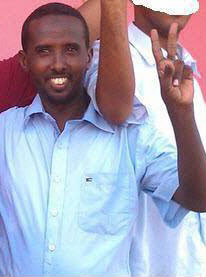Nairobi, August 12, 2014—The Committee to Protect Journalists calls for the release of Mohamed Ibrahim Waiss, a radio journalist who was taken into custody on Friday in a suburb of the capital, Djibouti City, and accused of incitement and publishing false news.
Police arrested Mohamed, a journalist for the opposition online radio station La Voix de Djibouti (The Voice of Djibouti) at 1 p.m. while he was covering a demonstration by the Union Pour Le Salut National (Union for National Salvation), a coalition of opposition parties, according to local journalists and news reports. The union routinely holds weekly protests to protest a lack of basic services and democracy, local journalists told CPJ.
Local journalists told CPJ that police also beat Mohamed, causing injuries to his eyes and back. He was taken to Hodan Balbala Police Station, where he was denied access to medical treatment and to his lawyer, the journalists said.
In court Monday, the state prosecutor accused Mohamed of incitement and publishing false news on social media networks under the recently passed Computer Crime Act, the Djibouti Journalists’ Union told CPJ. The court did not specify what posts, the union said. He is being held at Gabode Prison in the capital. His trial is set to continue on August 14, his lawyer, Zakaria Ali Abdilahi, said. He has not yet been officially charged.
CPJ’s repeated calls to Communications Minister Ali Hassan Bahdon were not immediately answered.
“This arrest is the latest example of the Djibouti government’s zero-tolerance approach to criticism,” said CPJ East Africa Representative Tom Rhodes. “We hold the government responsible for Mohamed Ibrahim Waiss’ well-being and call on authorities to release him immediately.”
Authorities arrested Mohamed in December for covering a similar demonstration and held him for a week at the central prison. His station, La Voix de Djibouti, has often been harassed in the past. In 2012, Houssein Ahmed Farah, a journalist for the station, spent more than three months in jail and was never charged with a crime. In February the same year, police beat a reporter and detained him for a day, warning him to stop his reporting.
